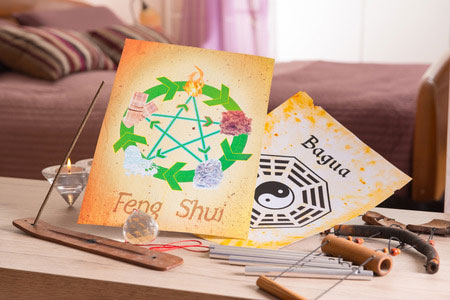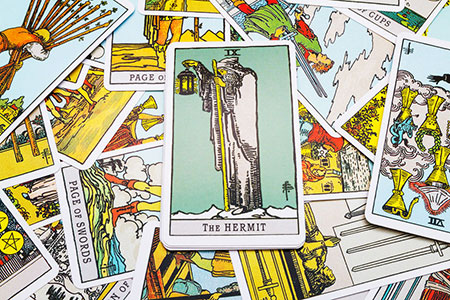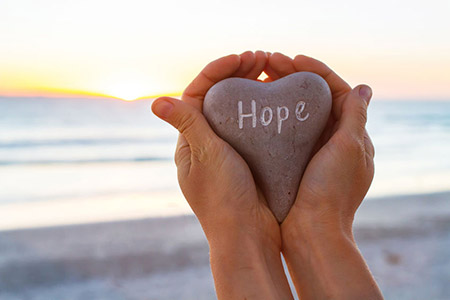spirituality
Time To Feng Shui Your Home
 Social-distancing and being quarantined at during the Covid-19 pandemic, is the ideal time to embark on a major de-clutter and clean-up. By doing a thorough cleaning and clutter clearing clutter now, we can open up the flow for positive energy to flow through our homes, offices and lives once the quarantine is lifted.
Social-distancing and being quarantined at during the Covid-19 pandemic, is the ideal time to embark on a major de-clutter and clean-up. By doing a thorough cleaning and clutter clearing clutter now, we can open up the flow for positive energy to flow through our homes, offices and lives once the quarantine is lifted.
To make the most of such a spring clean, consider applying some feng shui principles to rearrange your home. Many people’s perception of feng shui is that it is just a form of interior design, but it is actually an ancient spiritual practice and philosophy. It will literally open energy channels for abundance and prosperity, as well as health and wellness to flow into your life.
Feng shui is a system of laws that govern spatial arrangement and orientation in relation to the flow of energy (chi). The aim is to create a harmonious environment that enhance the balance of yin and yang. It is about living in spiritual harmony with our environment.
When we apply feng shui to our home and lifestyle, we do so in order to achieve balance in both our working and living space, and maximize our potential for success in our personal lives and in business.
Feng shui literally translated means ‘wind water.’ Wind scatters energy and water holds energy. In applying its principles, we can clear out negative energy and generate more positive energy.
Change Your Life With Mantras And Affirmations
 We live in difficult and uncertain times, and happiness often seems elusive. It is possible, however, through training your mind, to ‘flip a switch’ to activate feelings of joy and happiness with just a few words. This is known as affirmations and mantras.
We live in difficult and uncertain times, and happiness often seems elusive. It is possible, however, through training your mind, to ‘flip a switch’ to activate feelings of joy and happiness with just a few words. This is known as affirmations and mantras.
The two concepts are somewhat similar or related. Mantras are short words or phrases used in meditation in order to create focus, peace and calm, as in the practice of Zen. Affirmations are positive statements of intention that are repeated frequently to create new neural pathways, thought patterns and energy frequencies.
It’s easy to incorporate these two techniques into your daily spiritual practice.
Mantras
If you already meditate, you may choose a traditional mantra, such as Ananda (the Sanskrit word for bliss) or Ohm (the primordial, sacred sound of all creation). You could also choose another mantra that has special meaning for you, or even create your own.
As you engage in meditation, pay special attention to your breath as you focus on you mantra, either spoken aloud, or silently in your mind. Let all negativity go as you exhale. Repeat this process for 10 to 20 minutes each day, preferably in the same place, without any outside distractions. This way your mind begins to associate your mantra with feelings of calm and serenity.
Simple Ways To Reduce Your Stress Levels
 We all feel the effects of stress in our lives at the moment. This is an especially difficult time in the world, and it is challenging us in ways that we did not expect.
We all feel the effects of stress in our lives at the moment. This is an especially difficult time in the world, and it is challenging us in ways that we did not expect.
Stress is a feeling of being under way too much pressure. This pressure can come from different aspects of your daily life, such as career challenges, life transitions, relationship conflict, health problems, family issues and financial worries. Whatever the stressors in your life are, they can affect your well-being very negatively.
We all experience stress, but how we handle it affects our lives to various degrees. You might have tried different approaches, but not much has worked. Sometimes the solution is much simpler than one might realize. Here are some positive lifestyle tips to manage your stress levels. Even if you just apply a couple a day, these basic strategies can make a real difference in cultivating a calmer state and greater peace of mind.
Get Enough Sleep
Sleep is so important in so many ways, and so often neglected in our busy lives. Adequate sleep helps us to stay focused, heal is from within, and manage our days so much better.
If you are not sleeping well, or not getting enough sleep, make every effort to resolve this. It is probably the most important thing you can do to reduce your stress levels. I find meditation music or white noise very helpful, and taking short naps during the day are an excellent means to get extra rest.
The Spiritual Purpose Of Patience
 Life has been teaching me that patience is indeed a virtue. I have been becoming much more patient than I used to be. It is one of the lessons that I will have to learn in this lifetime.
Life has been teaching me that patience is indeed a virtue. I have been becoming much more patient than I used to be. It is one of the lessons that I will have to learn in this lifetime.
Patience is something that we are all told to have more of, but it can be difficult to be patient in trying circumstances or stressful times. Often we are wanting to advance in our life, and we have to get from one point to the next as quickly as possible, while patience is all about a spiritual ‘halt.’
Patience often ties into our soul contract, and why we have come here. We have to learn certain lessons before we can get to the next level. We can try to bypass patience, and force things to happen our way, but remember each of us have come here with a soul contract that guides us along our path. The higher self always knows which way is the best and easiest, but we try to rush things, and we jump into things and get ahead of ourselves, in ways that we should not.
We don’t always listen to our inner voice, and for this there are usually repercussions. Being impatient only serves to slow us down, or complicate our progress. Spirit is telling us that we can get to where we need to go, but it may take our time to get there. Our guides try to intervene and keep us paused. If only we would pay attention and listen.
Patience is all about understanding ourselves. When you send a wish or desire out into the Universe, you can’t dictate when it is going to come back to you, but you must trust that the Universe is going bring you to the place that you want to be.
From Separation Comes Unity
 During my morning meditation, I became very aware of the isolation many people are currently experiencing, from having to self-quarantine or shelter in place.
During my morning meditation, I became very aware of the isolation many people are currently experiencing, from having to self-quarantine or shelter in place.
Some are trapped in close quarters with family members, whom they don’t get along with, while others are solitary and feeling very alone. Whatever the circumstances, this is not easy for any of us, day after day, while grim news keeps coming in from the outside world.
In the Tarot there is a card, The Hermit, depicting an old, wise man who has chosen to retreat and isolate himself from the rest of the world. The card symbolizes spiritual isolation and social distancing, in order to seek wisdom and understanding within; to confront one’s inner demons, such as addictions, dependencies, habits or patterns; as well as learning to not rely on others, but to form one’s own opinions.
The Hermit card teaches us to find an inner solace and strength, a light within. There is much that we can learn from his wisdom. In normal life, we get so caught up in the mundane routines of everyday life, that we seldom pay attention to our inner being. We also spend so much time texting and scrolling through social media, that we get caught up in other’s opinions, attitudes and experiences, that we lose touch with our inner compass.
One of my Tarot mentors described The Hermit card as, “Stop the world, I want to get off.” It certainly seems in many ways that our world has been stopped in its tracks (but the planet itself has not stopped spinning). Many have nowhere to turn at this point, but inward. This may be a blessing in disguise in many ways.
Replace The Naysaying With Faith, Courage And Hope
 The world has come to a standstill, as we navigate through the COVID-19 pandemic. Many of us are in still shock that a microscopic virus could pose such an exponential risk that it is now altering our entire way of living.
The world has come to a standstill, as we navigate through the COVID-19 pandemic. Many of us are in still shock that a microscopic virus could pose such an exponential risk that it is now altering our entire way of living.
Some of us have also become paralyzed with fear, overwhelmed with thoughts of how our lives might be forever altered. I too have had my moments, when I have felt that the latest news headline was just one too many!
I have heard a lot of deep concern from people in recent weeks, especially over health, safety and economic outcomes. I have been advised by well-meaning friends, for example, not to make any major life changes and to put on hold significant endeavors, because the economy might not ever recover. I was even warned by a well-meaning neighbor not to venture out too far from home, because of the threat of getting hurt and needing to be transported to the nearest emergency room, where I could then contract COVID-19 and possibly never recover.
Unfortunately, we do live in a world that tends to replaces the concept of hope with just the opposite. Therefore, with the best of intentions, these naysayers have chosen to focus only on gloom and doom. I don’t mean to dismiss the tragedies some of us might be witnessing up close, or from afar, as they are very real and deeply painful. But I am also making a huge effort to hold on to hope.
For example, when people suggest that there won’t be a cure for the virus, I remind them that our collective health is in the custody of the Divine and that life will continue to thrive on this planet, under the protection of Spirit. Without any doubt, I believe there will be a cure for Covid-19, whether via a scientific breakthrough or herd immunity.
